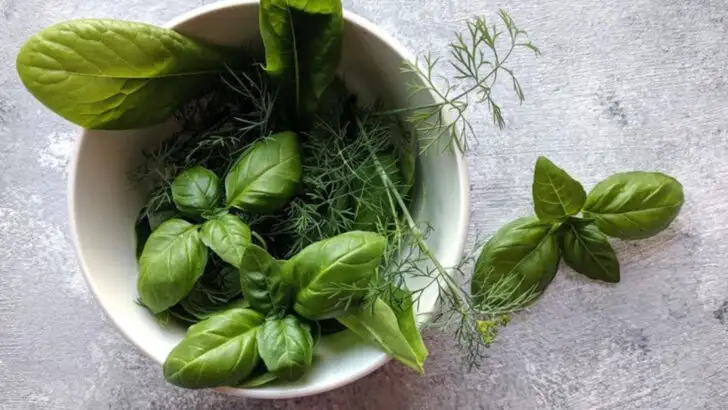Mosquitoes can ruin even the loveliest summer evening—but that doesn’t mean you have to reach for chemical sprays. These 17 plants naturally repel mosquitoes using their scent, oils, and compounds, creating a protective barrier that’s as beautiful as it is effective. Better still, most of them are easy to grow in pots, garden beds, or even on windowsills, so you can keep bugs at bay no matter your space.
What sets these plants apart is how they blend function with form. Many of them—like lavender, basil, and lemongrass—aren’t just repellent; they’re also fragrant, edible, and visually appealing. Some deter mosquitoes with strong essential oils, while others confuse them with their intense natural aromas, disrupting the pests’ ability to locate you in the first place. The result? A more comfortable, more natural outdoor experience—without synthetic chemicals or constant reapplication.
Whether you’re hosting a dinner on your balcony, reading in the garden, or simply enjoying an open window, these mosquito-fighting plants can make your space feel safer, calmer, and more inviting. It’s time to ditch the DEET and let nature do the work—beautifully.
Citronella
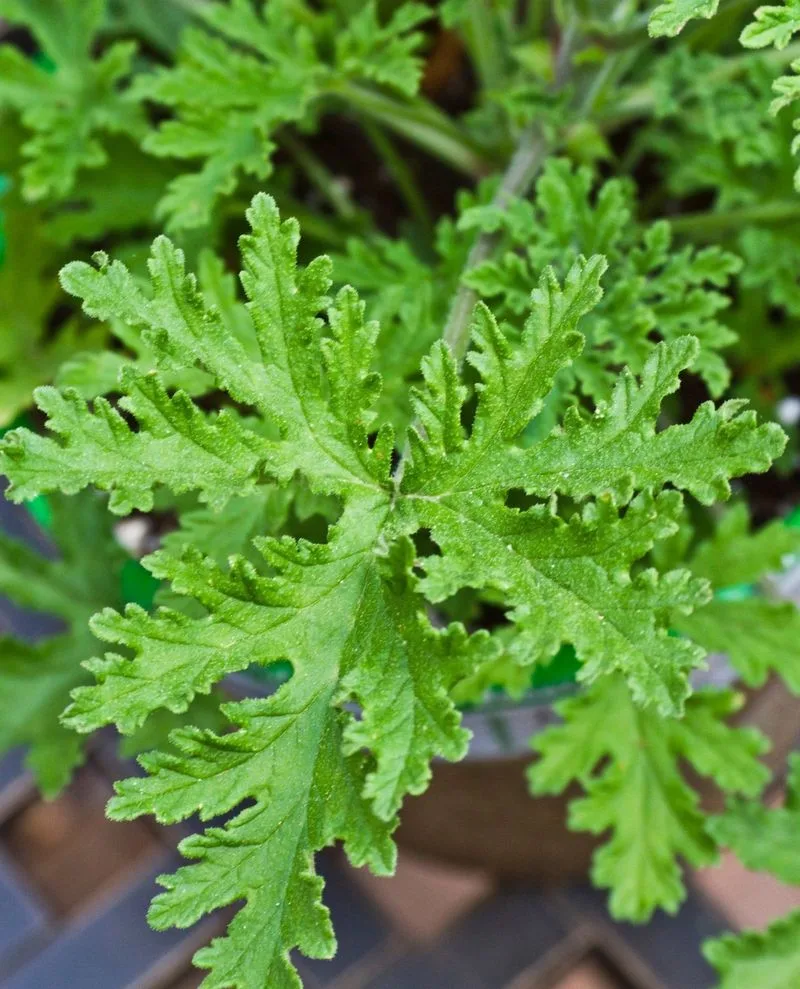
Known as the go-to plant for repelling mosquitoes, citronella is loved for its strong, lemony fragrance that masks other scents, keeping these pests away. This grass-like plant is perfect for patio pots or garden borders, adding a vibrant touch of green. Its oil is a key ingredient in many commercial repellents. Certain varieties can grow quite tall, making them excellent natural barriers against mosquitoes. Perfect for those who enjoy outdoor gatherings without the nuisance of bites. A must-have for any gardener looking to naturally deter mosquitoes.
Lavender

Beyond its beauty, lavender is cherished for its soothing scent that also happens to repel mosquitoes. Planted along pathways or in pots, lavender creates a peaceful atmosphere while its oil deters pests. Historically, it’s been used in sachets to scent drawers and closets, keeping insects at bay. Its vibrant purple flowers attract pollinators, adding biodiversity to your garden. Lavender thrives in sunny locations and well-drained soil, making it an easy-to-grow option for many. The bonus? Its calming aroma can also help you relax after a long day.
Marigold
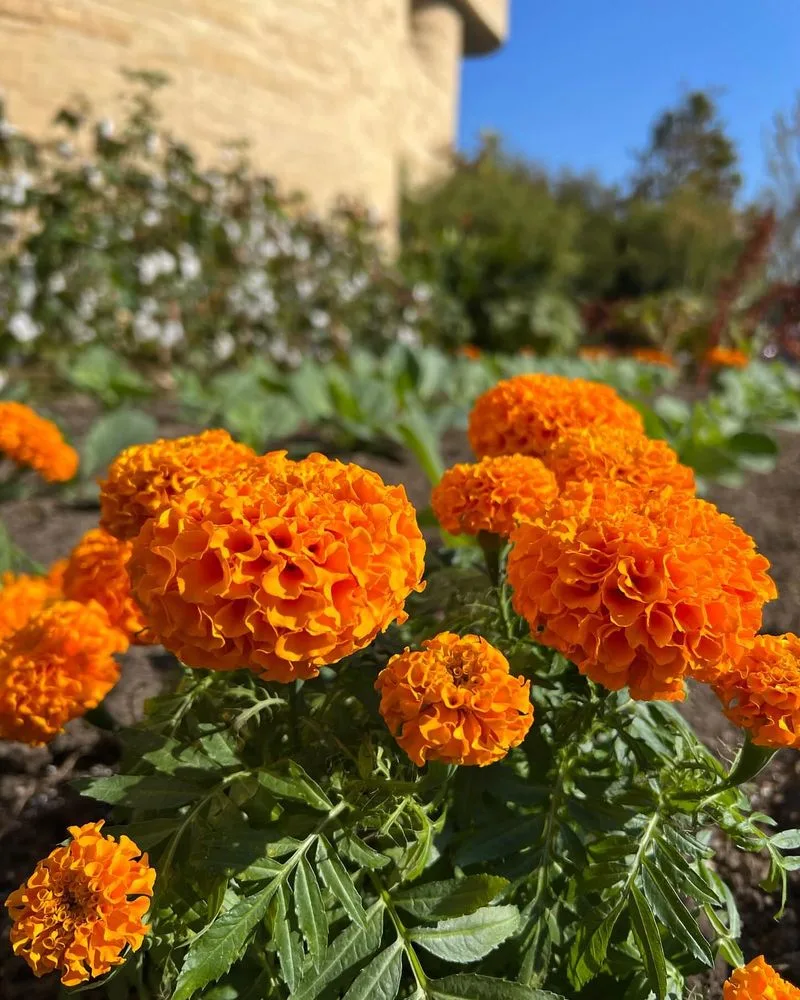
Brimming with color, marigolds bring sunshine to any garden. Their distinct aroma is unpleasant to mosquitoes, making them a functional addition to your landscape. Often used as a companion plant, marigolds protect more delicate plants from pests. Easy to care for, they thrive best in sunny conditions and well-drained soil. Besides repelling mosquitoes, their vibrant blooms can attract beneficial insects like ladybugs, enhancing your garden’s health. These hardy flowers can brighten up garden beds or be used in containers for flexible placement.
Basil
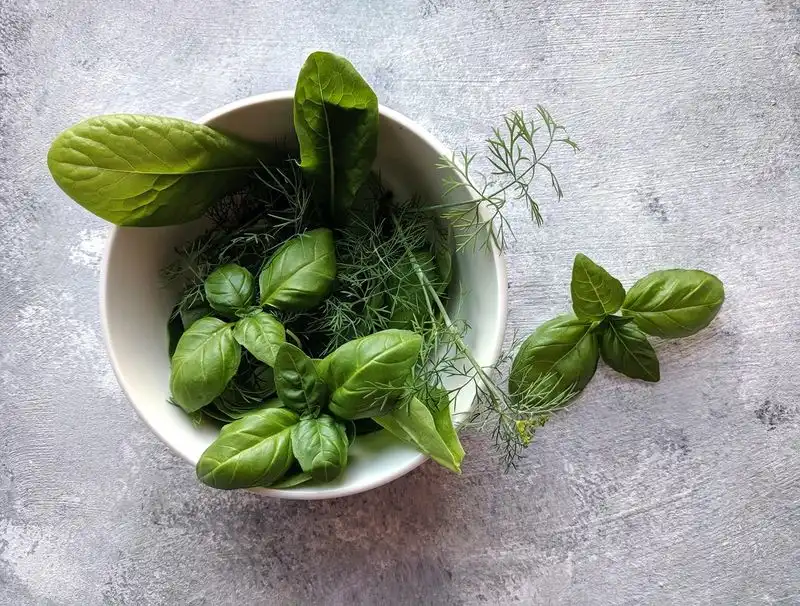
While commonly associated with Italian cuisine, basil also serves as a natural mosquito repellent. Its aromatic leaves are rich in essential oils that mosquitoes detest. Growing basil in pots around your entertaining spaces can add both beauty and function. Besides pest control, it offers a fresh supply of leaves for culinary uses. This herb prefers warm, sunny spots and regular watering, making it a staple in kitchen gardens. With its dual purpose, basil is not just a flavorful herb but also an effective deterrent against unwanted insects.
Rosemary
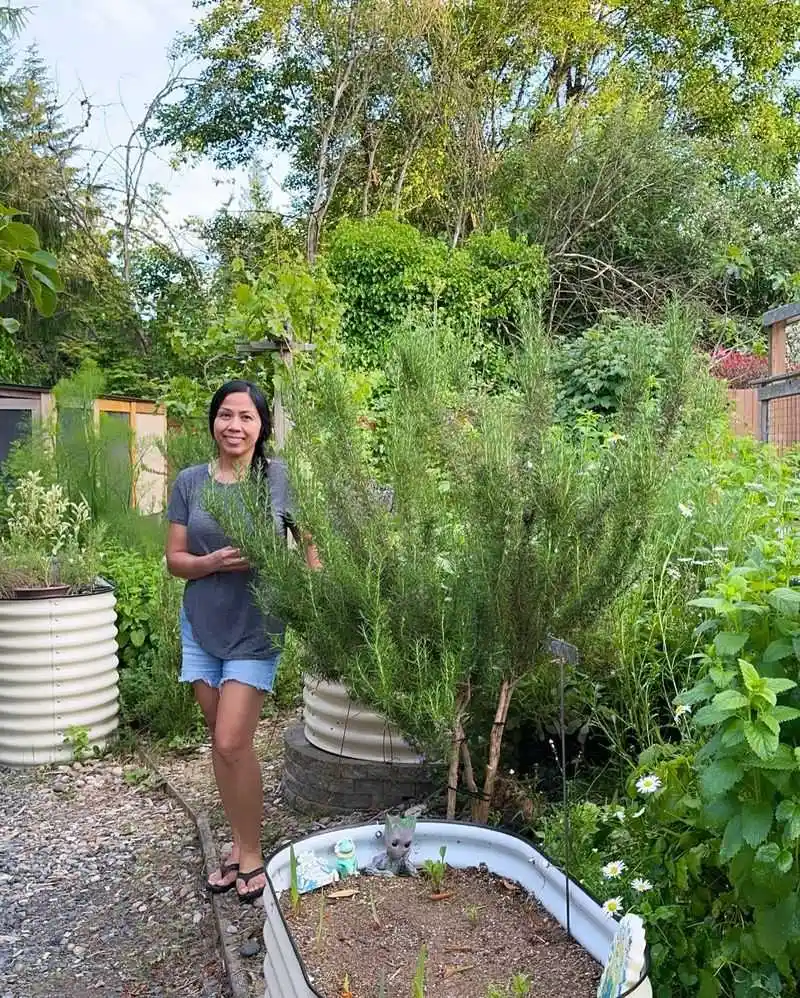
Rosemary’s woodsy scent does more than enhance meals; it also acts as a natural mosquito repellent. Plant it in containers or garden beds to keep mosquitoes at bay. This hardy plant enjoys full sun and well-drained soil, thriving even in drought-prone areas. Besides repelling mosquitoes, rosemary provides a delightful aroma and fresh sprigs for cooking. Whether used for culinary delights or mosquito control, its versatility makes it a garden favorite. Its ability to deter pests while attracting bees is an added benefit for any garden.
Mint
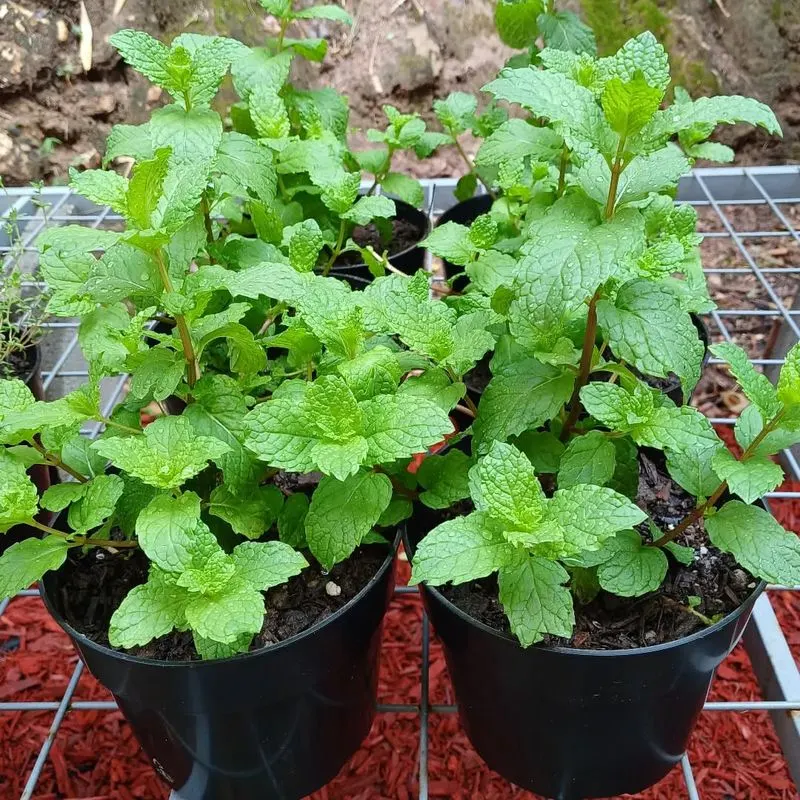
Mint’s invigorating scent is a natural deterrent for mosquitoes. Easy to grow, it’s often kept in pots to prevent it from overtaking other plants. Placing mint around patios or doorways can effectively keep mosquitoes at bay. Known for its refreshing aroma, mint is versatile, also used in teas and culinary dishes. This hardy plant thrives in partial shade to full sun and moist soil. While it grows rapidly, its pest-repelling properties make it a worthwhile addition to any garden. Enjoy its fresh scent while lounging outdoors, mosquito-free.
Catnip
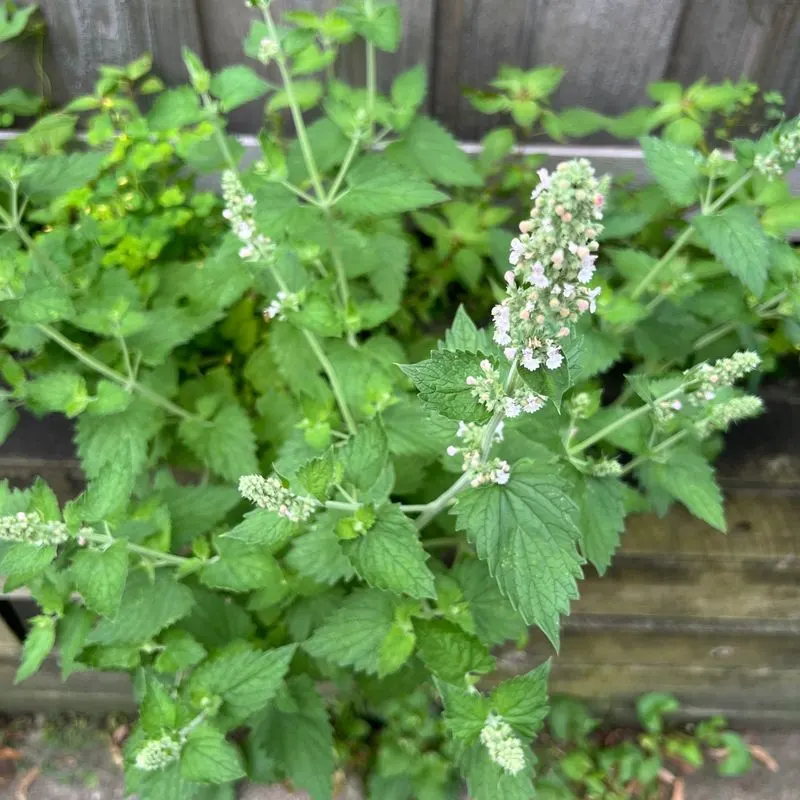
Catnip might be famous for entertaining felines, but it also works wonders in keeping mosquitoes away. Containing nepetalactone, a compound more effective than DEET, catnip is a formidable mosquito deterrent. Easy to grow and maintain, it flourishes in well-drained soil and full sun. Beyond repelling pests, catnip can be dried for herbal tea or cat treats, adding more value to its presence in the garden. Its delicate white flowers attract pollinators, promoting a healthy ecosystem. This plant’s dual purpose makes it a delightful garden companion.
Lemon Balm
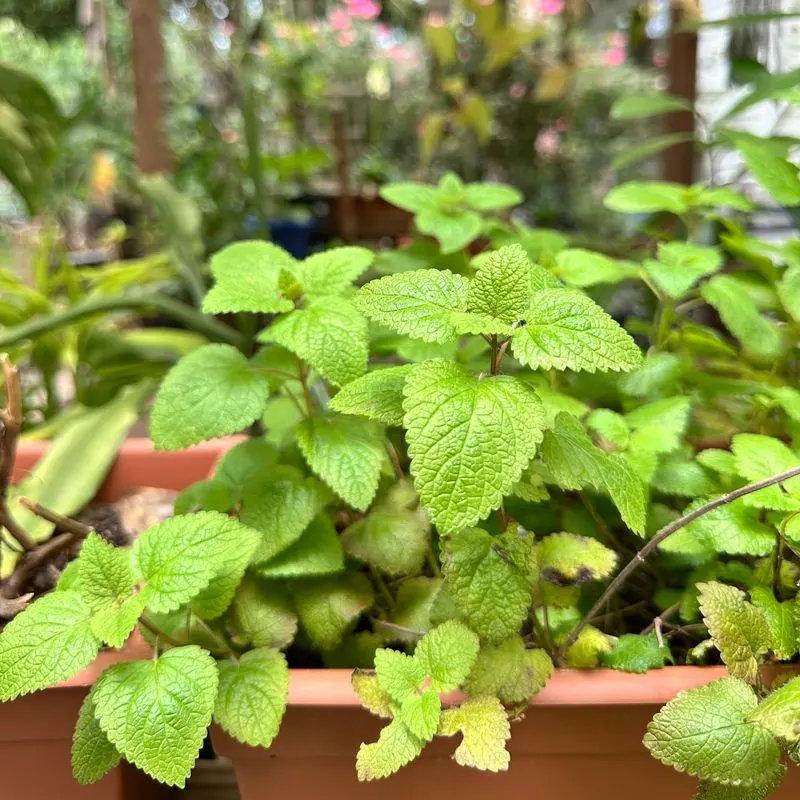
The soft, lemony fragrance of lemon balm is not just soothing for humans but deters mosquitoes effectively. Often used in soothing teas, its calming scent also translates to a natural mosquito repellent. Growing lemon balm in containers or garden beds near seating areas can enhance your outdoor experience. This herb prefers partial shade and well-drained soil, thriving even in less-than-ideal conditions. Ideal for herbal remedies, lemon balm’s versatility extends beyond its mosquito-repelling qualities, making it a worthy addition to any green space.
Sage
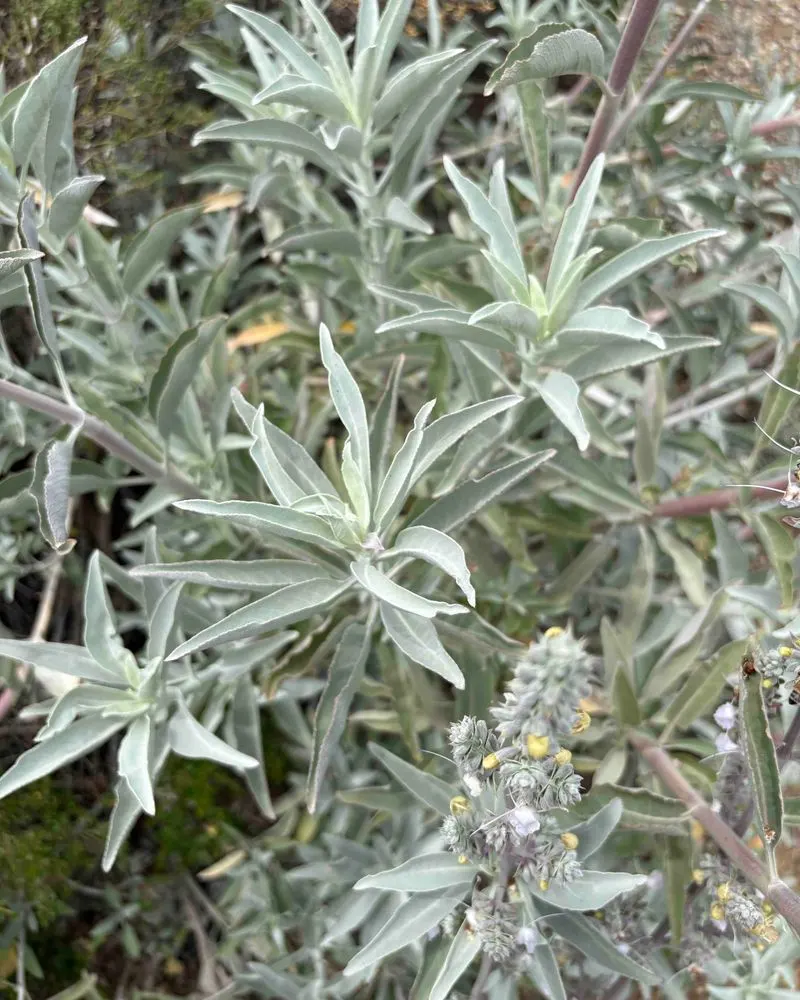
Sage’s aromatic leaves make it a savory addition to dishes and a deterrent for mosquitoes. Burning sage bundles during outdoor gatherings can create a fragrant smoke that mosquitoes find unappealing. This herb thrives in sunny spots with well-drained soil, making it a robust garden plant. Not only does sage repel pests, but it also attracts pollinators, enriching the garden’s ecosystem. Its silvery-green foliage adds texture and color to your plant arrangements. Sage’s multifaceted uses make it a practical and beautiful choice for any garden enthusiast.
Bee Balm
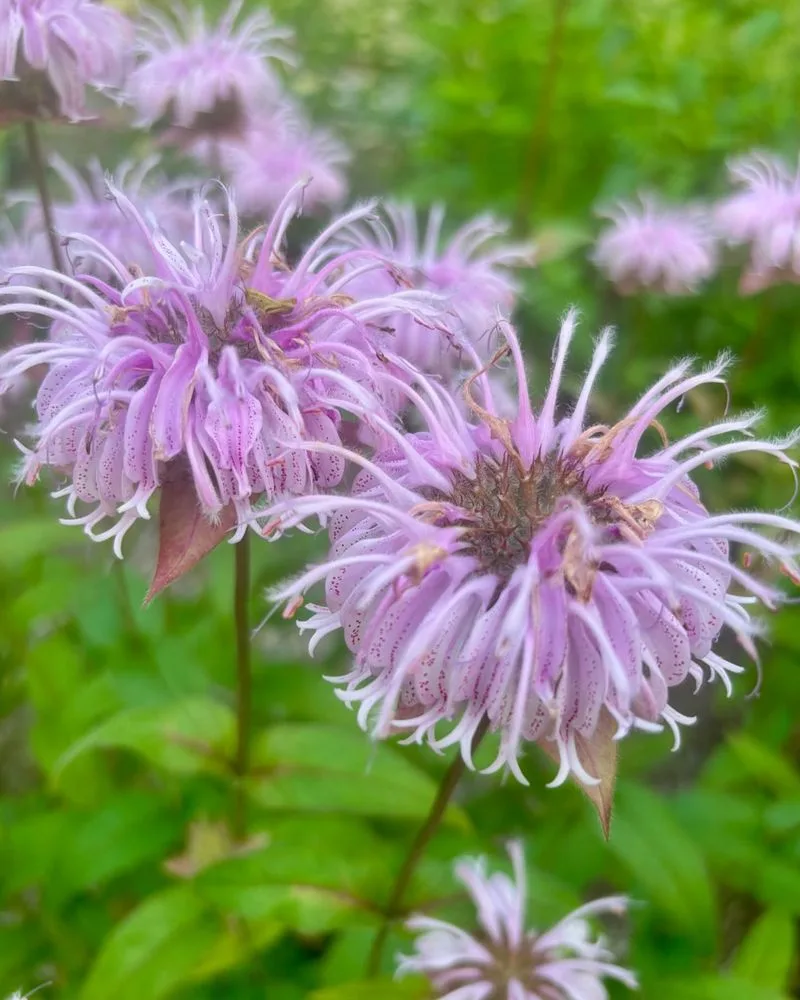
Bee balm’s bright, aromatic blooms are a feast for the eyes and a deterrent to mosquitoes. Known for attracting bees, butterflies, and hummingbirds, this plant also repels unwanted insects. Its striking colors add drama to any garden setting. Bee balm thrives in sunlit areas with moist soil, creating a lively and inviting atmosphere in your yard. Besides its pest-repelling qualities, it’s used in herbal remedies, offering a holistic benefit to gardeners. Its dual role in attracting pollinators and deterring pests makes it a garden favorite.
Pennyroyal
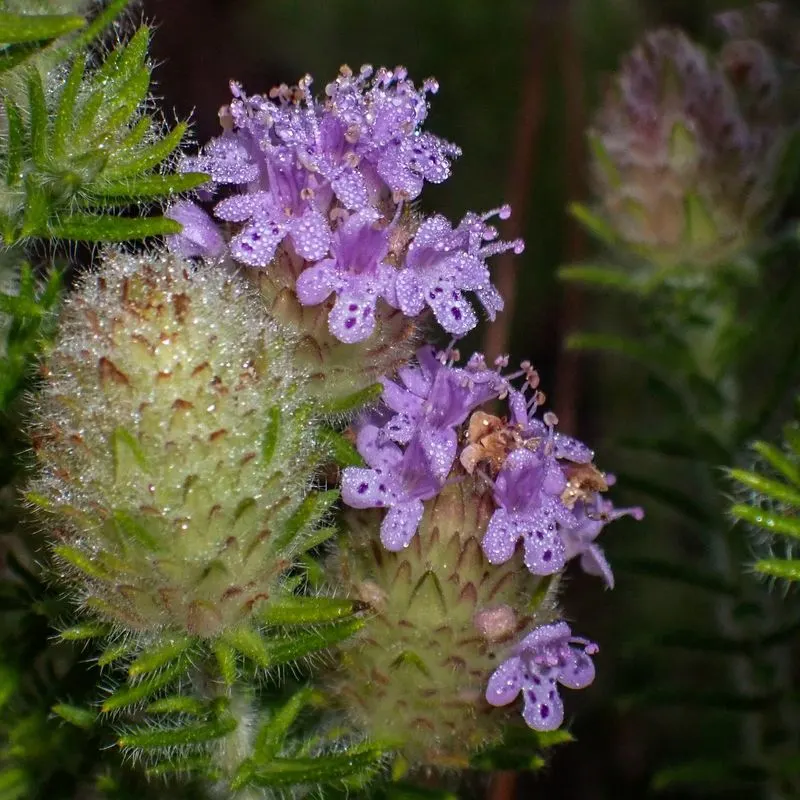
Despite its small stature, pennyroyal packs a powerful punch against mosquitoes. This plant’s strong minty scent is unappealing to pests, making it an effective natural repellent. Pennyroyal is often planted near doorways or seating areas to keep mosquitoes at bay. It’s important to note that while it deters pests, pennyroyal should be used with caution as it’s toxic if ingested. Thriving in well-drained soil and partial shade, it’s a robust addition to gardens. Its pest-repelling capabilities make it a useful ally in maintaining a mosquito-free environment.
Thyme
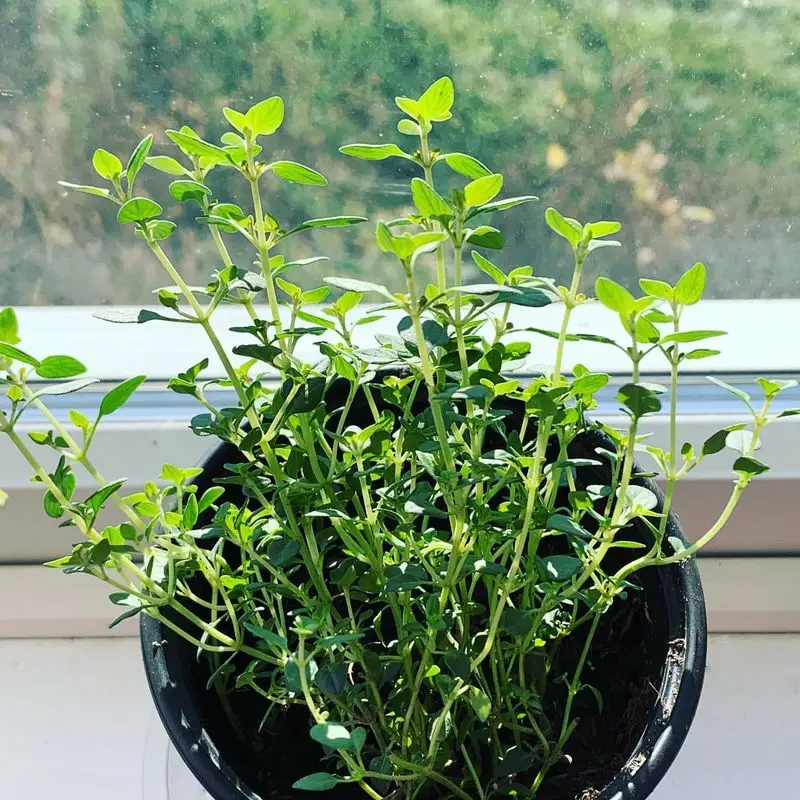
Thyme is more than a culinary staple; it’s a fragrant herb that repels mosquitoes. Its essential oils are offensive to many pests, providing a natural barrier around patios and gardens. Thriving in sunny, dry conditions, thyme is an easy-to-care-for plant that adds flavor to dishes and fragrance to the garden. It’s perfect for rock gardens or as ground cover, blending beauty with functionality. Besides its gardening benefits, thyme’s soothing aroma and culinary uses make it a versatile addition to any home, ensuring your outdoor spaces remain pleasant and bug-free.
Eucalyptus
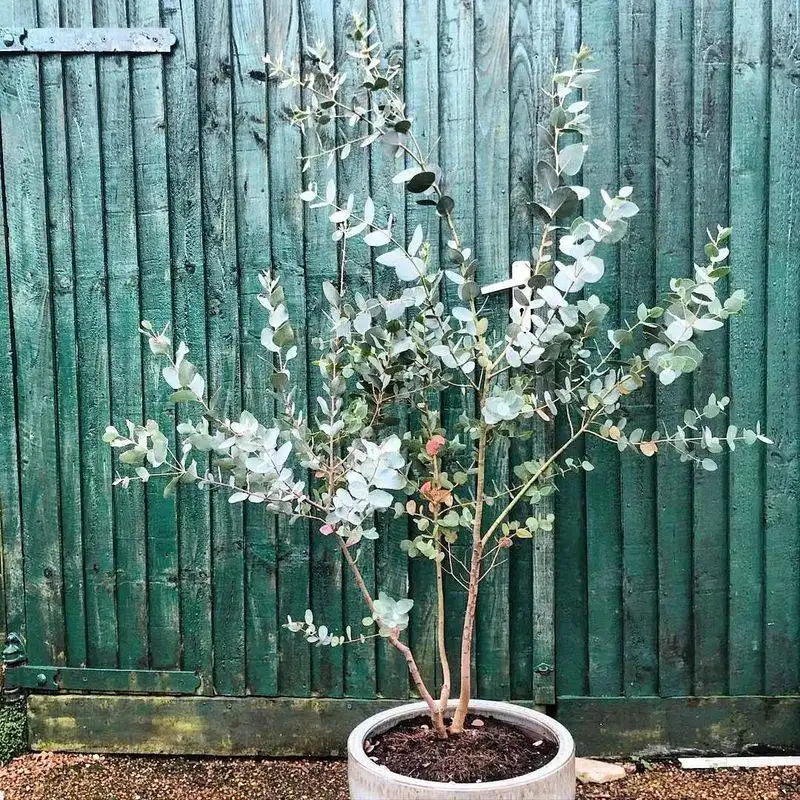
Eucalyptus is renowned for its refreshing scent that mosquitoes find intolerable. Its leaves contain oils that are highly effective in repelling these pests. Often grown in pots or garden beds, eucalyptus thrives in sunny, well-drained environments. Besides its pest-repelling qualities, it’s also used in essential oils and aromatic products. Its tall, slender growth makes it an attractive ornamental plant. For those looking to combine visual appeal with functionality, eucalyptus offers both. Its ability to keep mosquitoes at a distance is a valuable asset for any garden.
Geranium
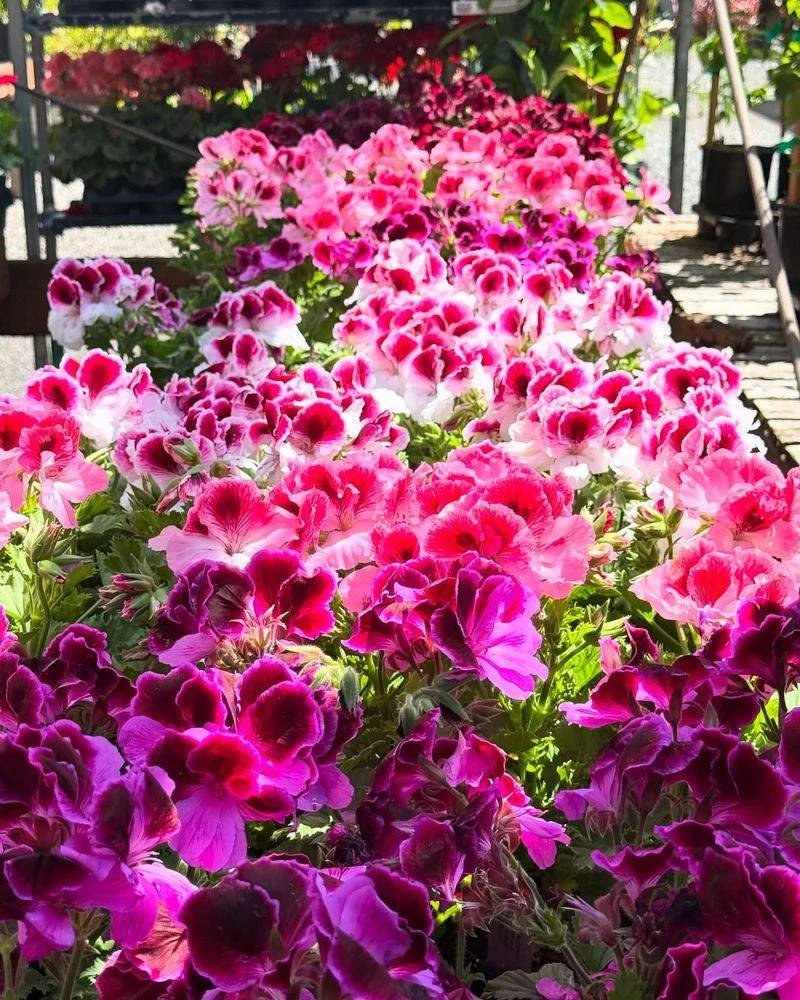
Geraniums are a popular choice for garden enthusiasts due to their vivid blooms and pleasant aroma. Their scent acts as a natural mosquito repellent, making them a practical addition to patios and windowsills. Easy to grow and maintain, geraniums thrive in sunny locations and well-drained soil. Besides repelling mosquitoes, they attract beneficial insects, promoting a healthy garden ecosystem. Known for their resilience, geraniums can withstand various climates, offering beauty and function year-round. Their versatility and effectiveness make them a favorite among gardeners seeking natural pest control solutions.
Allium
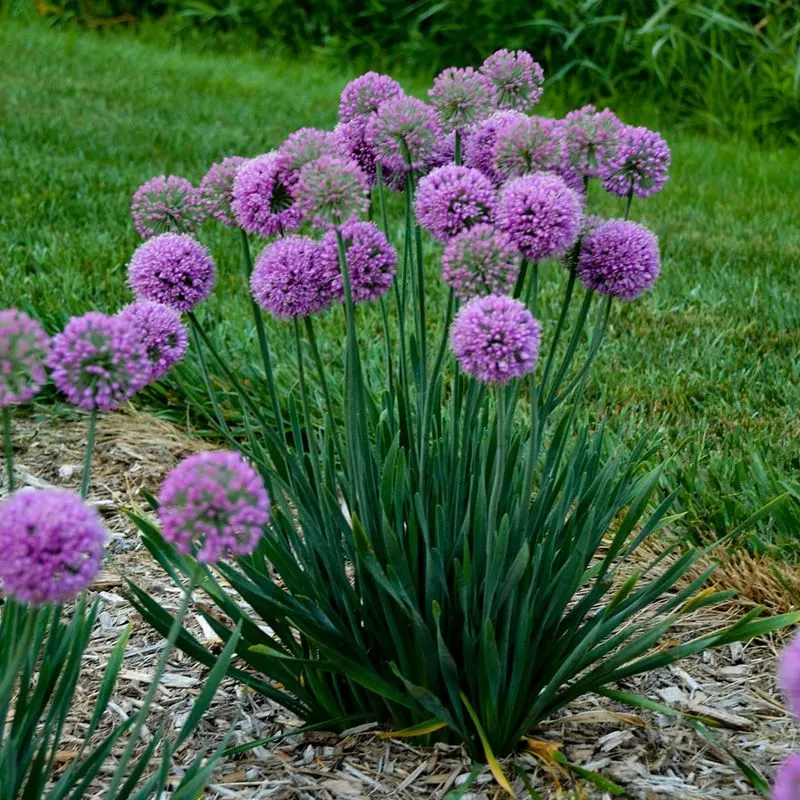
Alliums, with their striking globe-shaped blooms, are more than just a visual delight. They emit a smell that mosquitoes dislike, making them a beautiful yet functional garden choice. Planted among vegetables, they can protect against various pests while adding a touch of elegance to your landscape. Alliums thrive in sunny spots with well-drained soil, requiring minimal care once established. Their tall stems and unique appearance make them a standout feature in any garden. Besides their pest-repelling properties, alliums are excellent at attracting pollinators, enhancing garden biodiversity.
Garlic
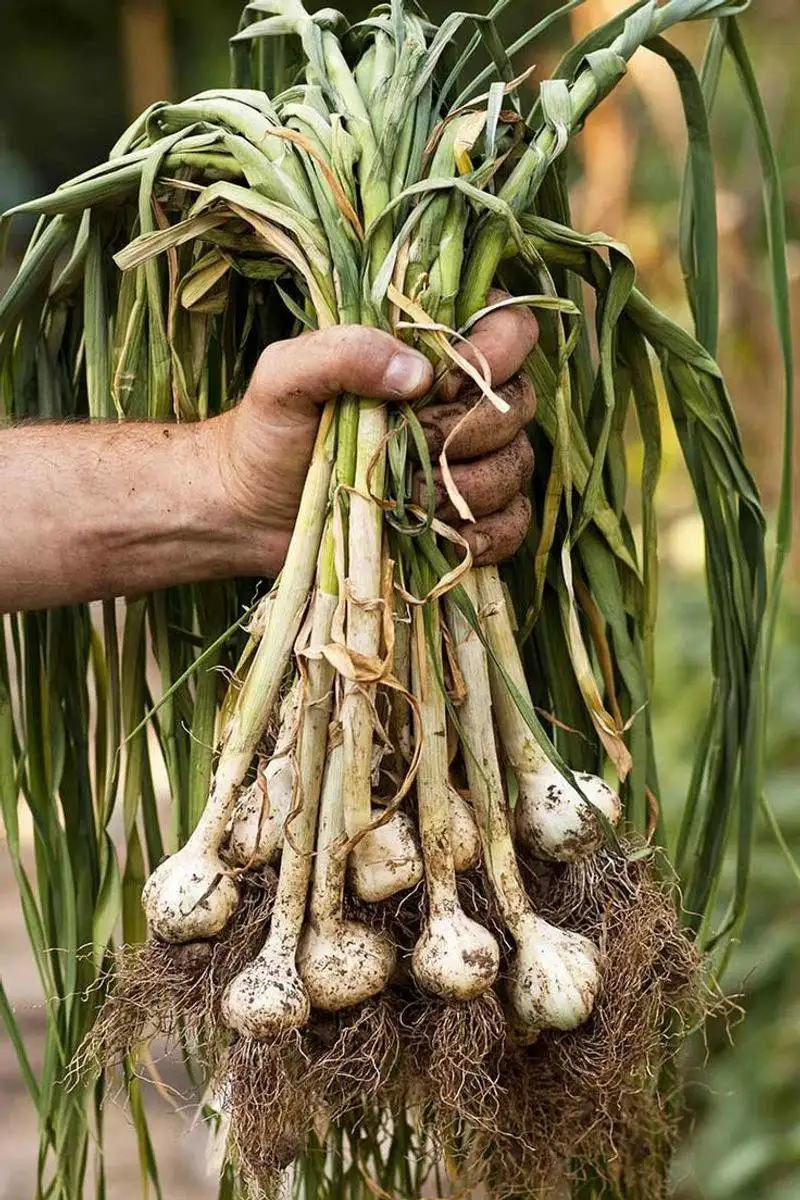
Garlic is renowned not just for its culinary uses but also for its strong scent that repels mosquitoes. Planting garlic around your garden can help keep these pests at bay. This hardy plant thrives in well-drained soil and sunny conditions, offering an easy-care option for gardeners. Beyond pest control, garlic provides a fresh supply of bulbs for cooking, making it a dual-purpose plant. Its pest-repelling qualities are complemented by its ability to ward off other insects, proving garlic is a valuable addition to any mosquito-conscious gardener’s arsenal.

